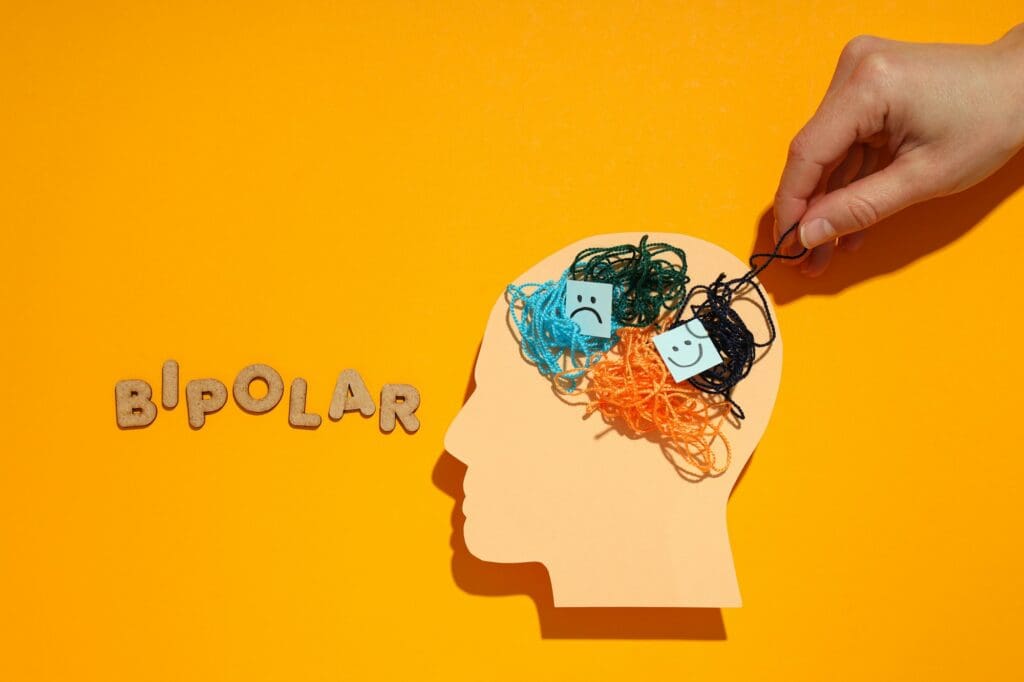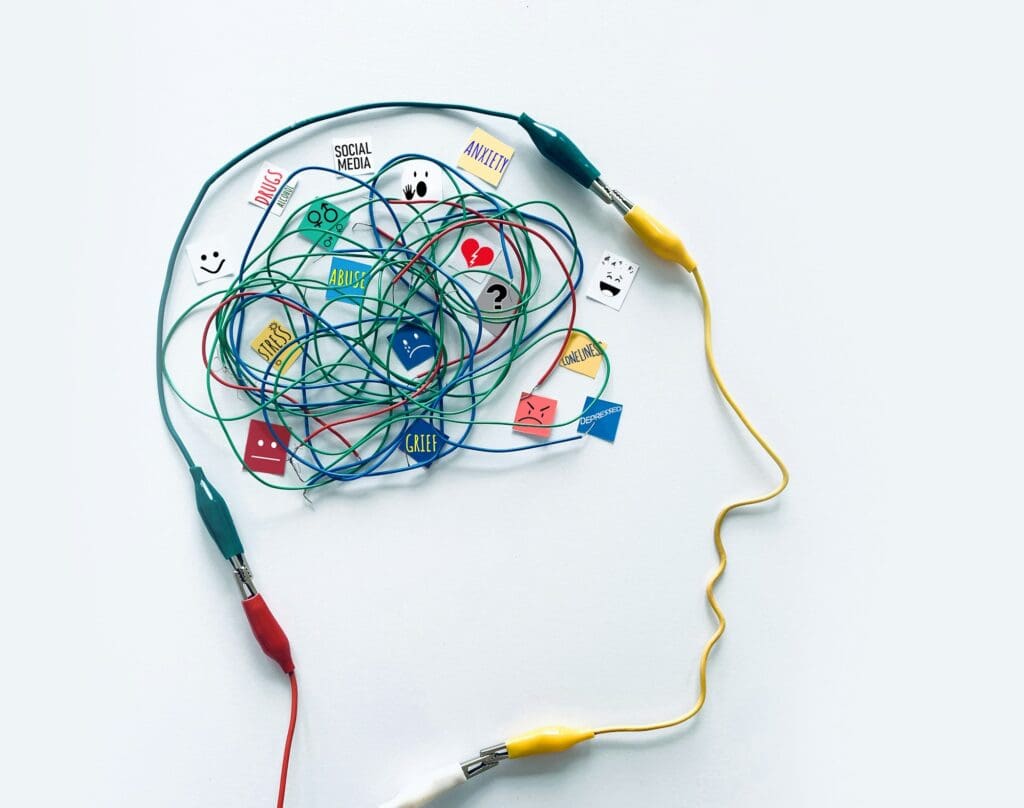


Understanding mental health is crucial for our overall well-being, yet myths and misconceptions often cloud our judgment. These myths not only perpetuate stigma but also hinder effective treatment. It’s time to break these barriers and equip ourselves with the right knowledge.
By debunking common mental health myths, you can make more informed decisions and offer better support to those around you. Let’s get started by tackling some of the most pervasive myths out there.
“The greatest weapon against stress is our ability to choose one thought over another.” — William James

Discussing mental health can sometimes feel daunting, but it’s a crucial step toward fostering understanding and breaking down the stigma.
By opening up about your experiences or simply being a receptive listener, you contribute to a culture of awareness and empathy. It’s essential to remember that talking about mental health should be approached with sensitivity and care.
Share accurate information and personal stories to dispel myths and provide support. You might be surprised at how many others have similar experiences but have remained silent due to fear of judgment.
Encouraging open conversations can help normalize mental health struggles and make it easier for people to seek the help they need.
Whether you’re discussing with friends, family, or colleagues, approach each conversation with compassion. Simple acts of kindness, like asking how someone feels or genuinely listening, make a significant impact. Building a supportive environment can lead to positive changes in overall mental health awareness and acceptance.
It’s astonishing how much misinformation surrounds mental health. You might have heard people say things like “people with mental illness are just seeking attention” or “therapy is a waste of time.”
These myths not only perpetuate harmful stereotypes but also prevent many from seeking the help they need. So, let’s set the record straight and debunk some of the most common mental health myths!

Mental health is a topic shrouded in misunderstanding and misinformation. Despite growing awareness, many individuals still hold on to common misconceptions that can perpetuate stigma and cause harm.
These myths often paint an inaccurate picture of what mental illness is and how it impacts those who live with it. By debunking these common misconceptions, we can foster a more empathetic and informed perspective on mental health issues.

One persistent myth is that having a mental illness means you’re “crazy.” This misconception prevents many from seeking the help they need. The reality? Mental illnesses are health conditions involving changes in emotion, thinking, or behavior (or a combination of these).
Just like physical illnesses, they have varying degrees of severity and can affect anyone irrespective of their background. Seeking professional help is a crucial step towards managing these conditions effectively.
Another widespread myth is that people with mental illnesses are violent and dangerous. This violates the truth on multiple fronts. Data from mental health experts, reveal that individuals with mental health conditions are more likely to be victims of violence rather than perpetrators. Mental illnesses are not predictive of violence and should not be stigmatized as such.
Individuals often misinterpret bipolar disorder as mere moodiness. This minimizes the real impact of the condition. Bipolar disorder encompasses dramatic shifts in mood, energy levels, and the ability to carry out day-to-day tasks, which are much more severe than the normal ups and downs everyone experiences.
Proper diagnosis and treatment, including medication and therapy, can help individuals lead fulfilling lives.
Post-Traumatic Stress Disorder (PTSD) is another condition plagued by myths, primarily that it’s a disorder limited to military personnel.
The condition can affect anyone who has experienced or witnessed a traumatic event. This includes survivors of accidents, natural disasters, and personal assaults. It’s essential to recognize the diverse experiences that can lead to PTSD to provide appropriate support and reduce stigma.
Perhaps one of the most harmful myths is the notion that there’s no coming back from a mental illness. This simply isn’t true. With the right support, treatment, and strategies, many people with mental illnesses lead productive, well-adjusted lives.
Advances in therapy, medications, and holistic health approaches continuously improve outcomes for those suffering from mental health conditions.
Organizations dedicated to mental health work tirelessly to dispel these myths and promote a more accurate understanding of mental health. Educating yourself and others can help reduce the stigma and foster a more supportive environment for those affected by mental illnesses.
Technology has permeated every aspect of our lives, and mental health care is no exception. With the prevalence of smartphones and the increasing comfort of users in seeking help online, mental health apps have emerged as a valuable resource.
These digital tools offer support, track your progress, and provide coping strategies, all from the palm of your hand. But are they effective? And how do you choose the right one for your needs? Let’s delve into the world of mental health apps and explore their benefits, limitations, and how they can be integrated into your mental wellness journey.
When people think about mental health, they often overlook the significant impact it can have on the body. Your mental state can influence various physical systems, leading to symptoms that may seem unrelated to psychological well-being at first glance.
Understanding this connection can help you recognize the full scope of how mental health affects overall health, encouraging more comprehensive care and awareness.

Understanding therapy’s benefits is crucial in dispelling the many myths surrounding mental health treatment. Therapy, utilized effectively, empowers individuals to navigate their mental health challenges and can significantly enhance one’s quality of life.
By seeking professional help, you’re not only taking a step towards personal growth but also contributing to a broader conversation that can dismantle the stigma associated with mental health issues.
Addressing mental health holistically means considering the whole person—mind, body, and spirit. This approach goes beyond traditional talk therapy, integrating practices like nutrition, exercise, mindfulness, and community support.
By cultivating a balanced lifestyle, you can support your mental health more effectively.
Nutrition: What you eat profoundly impacts your mental well-being. Diets rich in fruits, vegetables, lean proteins, and whole grains can improve mood and energy levels. Foods high in Omega-3 fatty acids, such as salmon, walnuts, and flaxseeds, have been shown to reduce symptoms of depression and anxiety.
Exercise: Regular physical activity is a powerful tool for enhancing mood and reducing anxiety. Exercise boosts the production of endorphins—your body’s natural mood lifters. You don’t have to hit the gym for hours; even a daily 30-minute walk can make a significant difference.
Mindfulness and Meditation: Mindfulness practices, such as meditation, help you stay grounded in the present moment and manage stress more effectively. Mindfulness can reduce symptoms of depression and anxiety by promoting a sense of calm and self-awareness.
Community Support: Social connections are a crucial element of mental health. Whether it’s through family, friends, or support groups, having a strong social network can provide emotional support and improve mental well-being. Engaging in community activities can also reduce feelings of isolation and loneliness.
Remember, a holistic approach isn’t about replacing traditional mental health treatments but complementing them. Each person’s path to mental wellness is unique. By integrating these holistic practices, you can create a robust, multi-faceted strategy for maintaining and improving your mental health.

Mental health myths persist for several reasons. First, lack of education and awareness plays a significant role. Many people simply aren’t exposed to accurate information about mental health.
Additionally, media representations often contribute to misunderstandings, portraying mental illness in ways that are sensationalized or stereotyped.
Lastly, mental health is still stigmatized in many cultures, leading to a reluctance to discuss it openly and perpetuating misconceptions through silence and misunderstanding.
Absolutely, mental health myths can be harmful in numerous ways. When misconceptions are believed, they can prevent individuals from seeking the help they need.
For instance, thinking that mental illness means someone is “crazy” can lead to shame and fear, discouraging people from talking about their struggles or seeking treatment.
Additionally, these myths can perpetuate stigma and discrimination, isolating those who suffer and potentially worsening their conditions. It’s crucial to dispel these myths to cultivate a supportive environment where mental health is taken seriously and help is accessible.
When someone you care about believes in mental health myths, it can be challenging to know how to support them. Here are some strategies you can use:
By taking these steps, you can help reduce the stigma and misinformation surrounding mental health and offer much-needed support to your loved one.
Some of the most damaging mental health myths can severely impact individuals’ lives and well-being. One prevalent myth is that having a mental illness means someone is ‘crazy’. This stereotype can be incredibly harmful, as it fosters stigma and discourages people from seeking the help they need.
Another damaging myth is the belief that people with mental illnesses are violent and dangerous. This misconception not only stigmatizes those with mental health conditions but also isolates them, making it even more challenging to reach out for support.
Additionally, the idea that individuals with bipolar disorder are simply moody trivializes a serious condition and undermines the importance of proper diagnosis and treatment.
The myth that Post-Traumatic Stress Disorder (PTSD) is only for military personnel can lead to a lack of recognition and assistance for individuals who experience trauma outside military contexts.
Lastly, the notion that there is no coming back from a mental illness creates a sense of hopelessness and can prevent individuals from pursuing effective treatment options.
Educating others about mental health myths begins with arming yourself with accurate information. Share credible resources and articles from trusted organizations dedicated to mental health, such as the National Alliance on Mental Illness (NAMI) or the World Health Organization (WHO). Open up conversations by addressing common myths directly and providing factual, research-based counterpoints.
Use real-life stories and personal anecdotes to humanize mental health issues. People often relate better to real experiences than statistics. Encourage empathy by highlighting the physical and emotional toll of misconceptions and stigma surrounding mental health. Sharing positive stories of recovery and management can also demonstrate that mental health issues are manageable and treatable.
In social situations or online platforms, don’t shy away from correcting misinformation when you encounter it. Politely but firmly provide the correct information and offer resources for further reading. Remember, patience and understanding go a long way in debunking myths and reducing the stigma associated with mental health.
Finally, advocate for mental health education in schools, workplaces, and communities. Supporting policies that promote mental health awareness and literacy can also contribute to a more informed and compassionate society.
Understanding and addressing mental health myths is crucial for improving our collective well-being. By debunking these common misconceptions, we pave the way for more open and informed conversations about mental health.
Remember, seeking help is a sign of strength, not weakness, and many effective treatments are available. From medication and talk therapy to lifestyle changes and holistic approaches, there are numerous paths to recovery and well-being.
Don’t let myths deter you from reaching out for support. Whether you or a loved one are facing challenges, credible information and compassionate care can make a significant difference. Always rely on trusted sources and professional advice when navigating mental health issues.
We hope this article has provided you with valuable insights and encouraged you to take positive steps towards mental health awareness and recovery. Remember, mental health is just as important as physical health, and taking care of your mind is a vital aspect of overall well-being.









